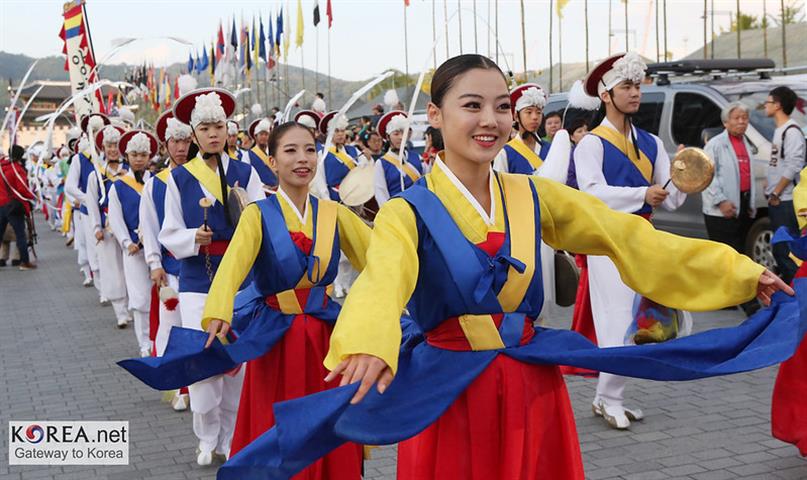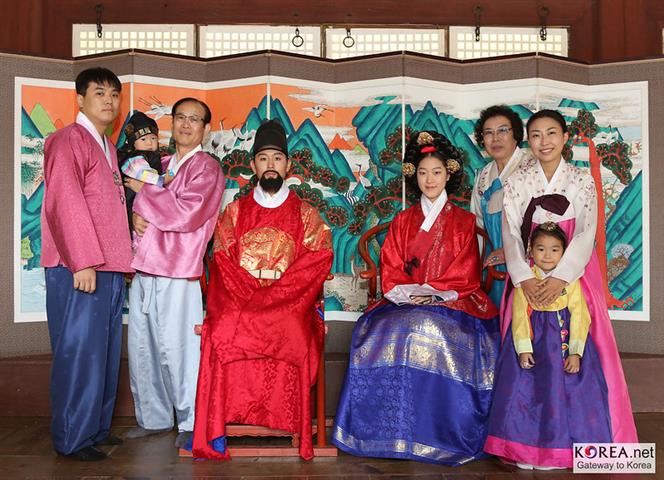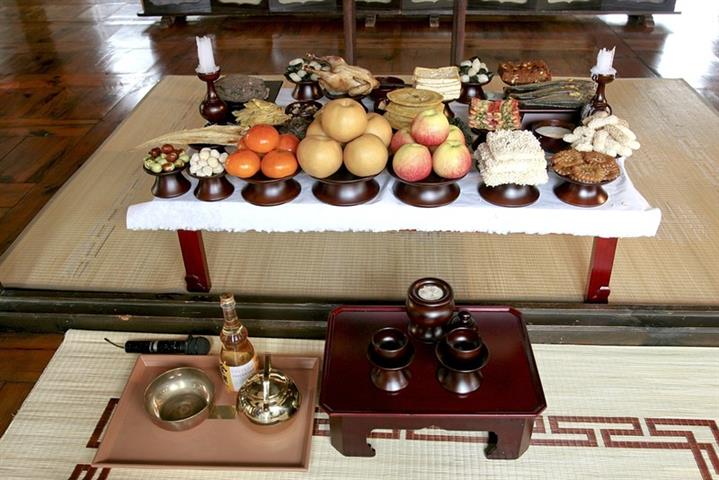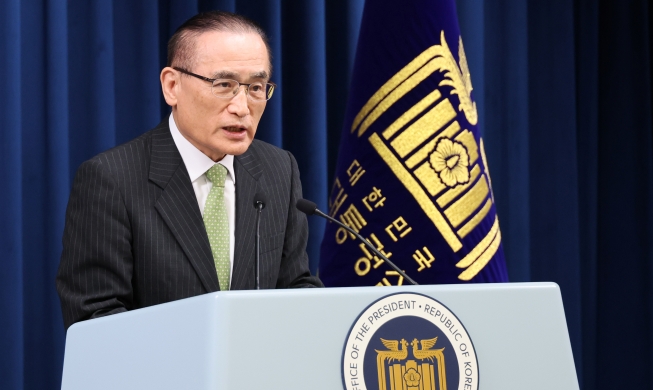- 한국어
- English
- 日本語
- 中文
- العربية
- Español
- Français
- Deutsch
- Pусский
- Tiếng Việt
- Indonesian
By Honorary Reporter Dayviana Diaz from Cuba
Photo = Korea.net DB
Chuseok (Korean Thanksgiving), one of Korea's two biggest holidays, is synonymous with family reunions. Due to COVID-19, however, Koreans are being urged to celebrate the holiday at home in the interest of public health and safety.

A Chuseok holiday celebration is held in Seoul. (Korea.net DB)
Celebrated on the 15th day of the eighth month under the lunar calendar, Chuseok is a three-day holiday to give thanks and celebrate the year's harvest. This year, the three days fall on Sept. 30 and Oct. 1-2, meaning a five-day holiday. The Korean government, however, will temporarily implement the highest level of social distancing during the period, so the public needs to comply with all measures for a peaceful and healthy celebration.
With social distancing at Level 2 in Seoul, Gyeonggi Province and Incheon, gatherings of 50 or more people indoors and more than 100 outdoors are prohibited. COVID-19 is still a danger in Korea, and health authorities fear a surge in infections over the holidays. So the two-week period from Sept. 28 through Oct. 11 will be designated a special period in which stronger nationwide efforts for containing the pandemic will be implemented.
How will Chuseok's observance change this year?
During Chuseok, thousands of people travel across the country, mostly from Seoul to their hometowns in the provinces, to see relatives. Because Seoul remains the hot spot for additional waves of infection, health authorities are asking the public to avoid family gatherings during this year's holiday period.

Several generations of a family traditionally celebrate Chuseok. (Korea.net DB)
The availability of public transportation will be reduced as much as possible during the period, as people will be encouraged to celebrate Chuseok at home. Korea Rail Corp. will sell a million train tickets only, or half of its normal capacity, with only windows seats available. Such tickets will also be sold online only to prevent crowds of ticket buyers from gathering.

The charye table is used to pay respects to ancestors. (Korea.net DB)
Another important ritual during Chuseok is charye, a memorial service involving visits to the graves of ancestors for cutting and taking care of the surrounding grass, offerings of food, fruit and wine, and bowing.
This year, public access to cemeteries and memorials will be restricted given COVID-19. Yet this tradition can be performed done online through smartphones, taking advantage of new technologies to allow people to pay their respects without physically visiting their ancestors' graves. This will be done through panoramic views and videos provided to families. A reservation system will also be used for access to memorials during the two-week Chuseok period.
Rallies are also prohibited until Oct. 11 under a government measure of Level 3 social distancing in line with the special period designation. So even if many Koreans spend Chuseok away from their families and loved ones, public safety is the highest priority. Even under tight social distancing, Chuseok remains a special occasion for Koreans.
enny0611@korea.kr
*This article is written by a Korea.net Honorary Reporter. Our group of Honorary Reporters are from all around the world, and they share with Korea.net their love and passion for all things Korean.
